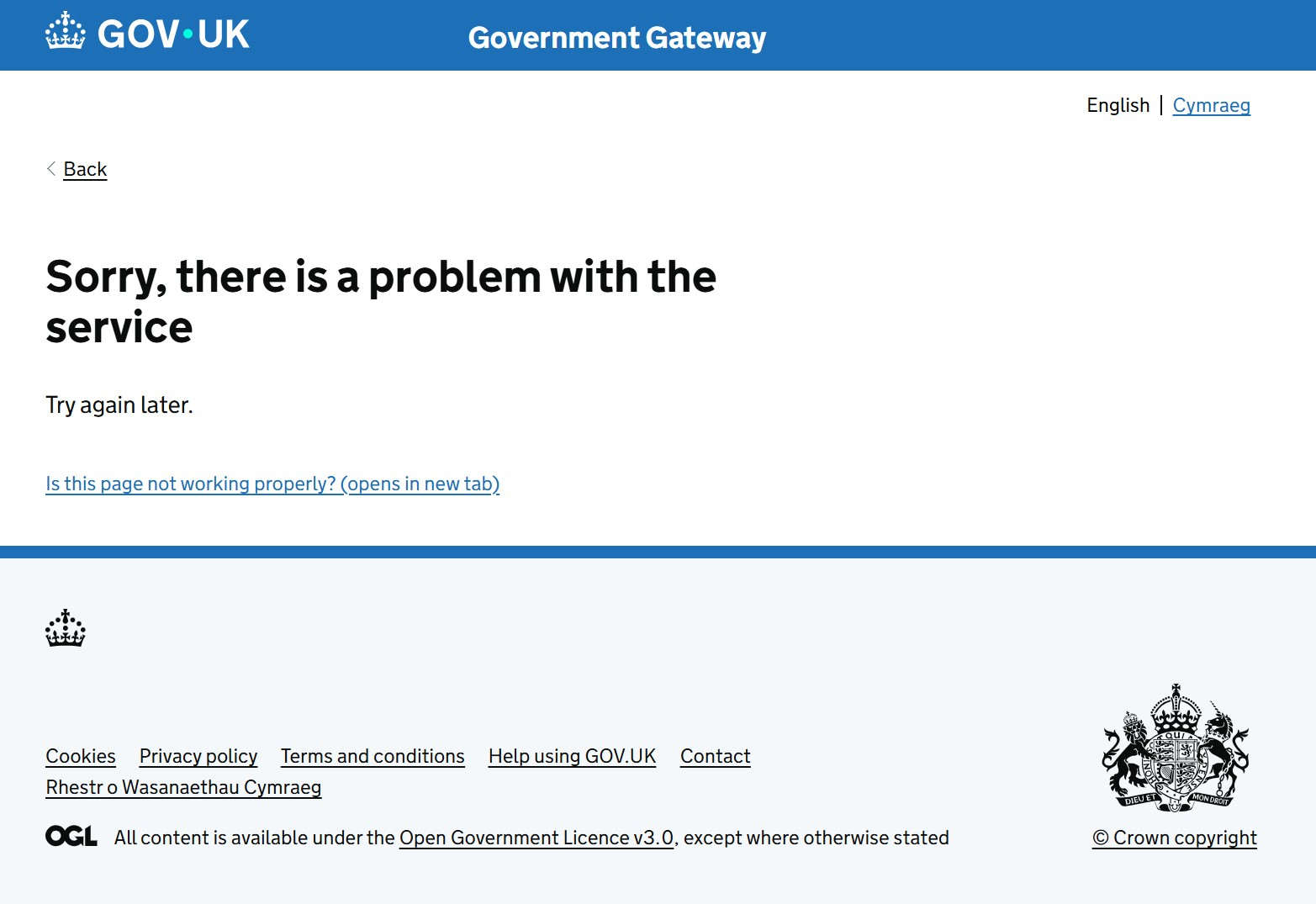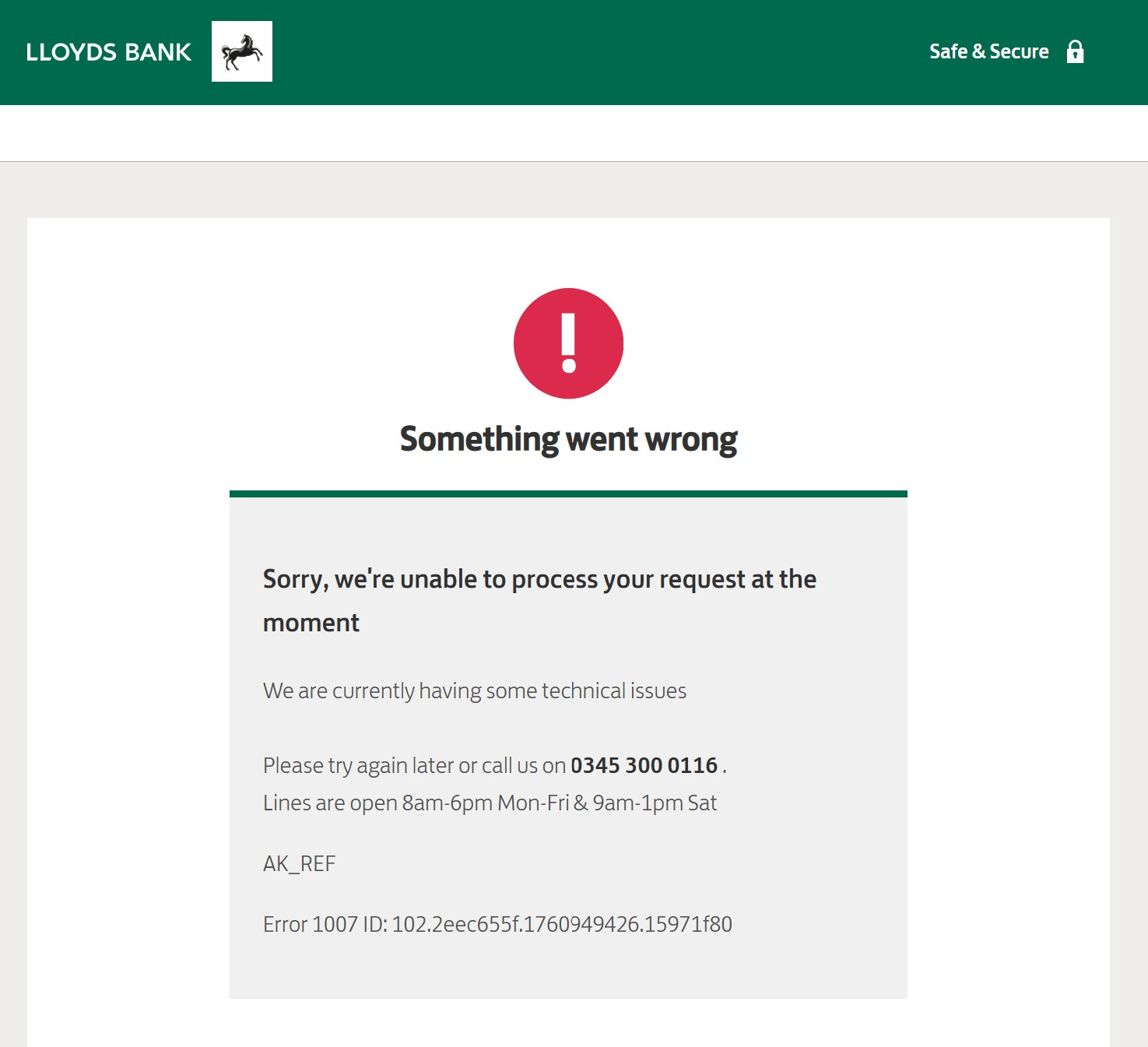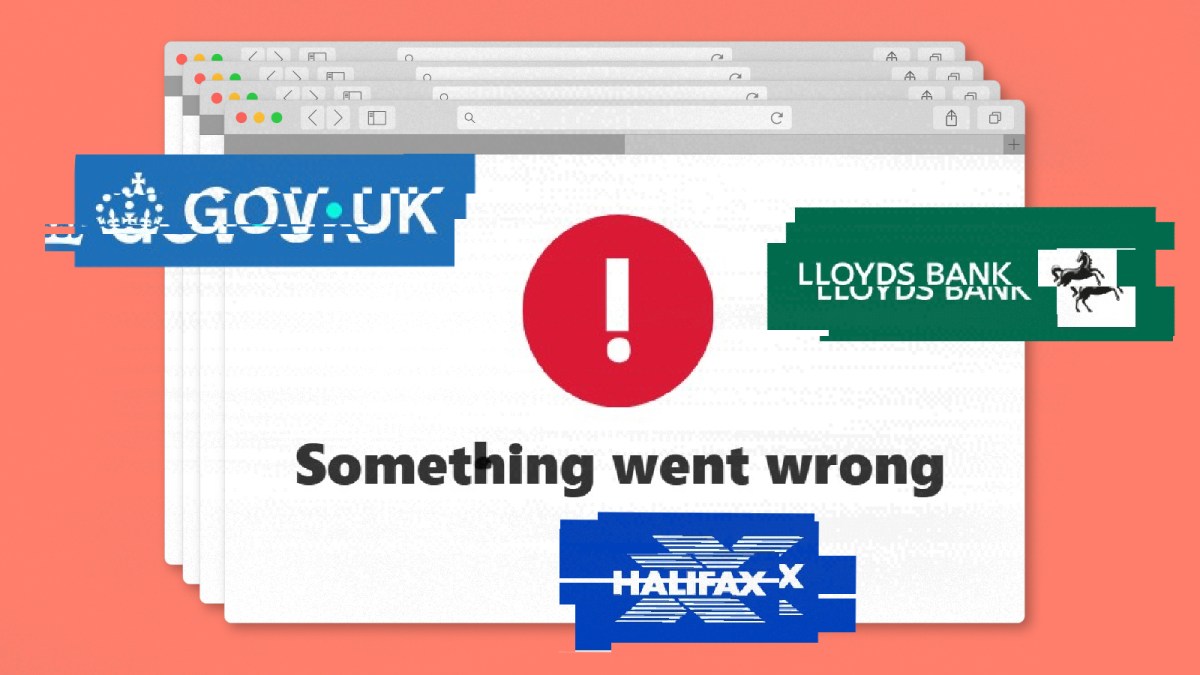People are being warned to be wary of potential scams as hackers could be exploiting vulnerabilities caused by the AWS blackout.
Marijus Briedis, chief technology officer at NordVPN, said: “While Amazon Web Services might already have found the technical fault, this still provides a prime opportunity for hackers to look for vulnerabilities while defences may be down for affected companies.
“In the hours ahead, as AWS works to fix the issue, look out for potential phishing emails or messages that try to deceive you into clicking on malicious links or ask you to urgently change your details to protect your account. These could be attempts to infect your devices with malware or steal your data.”
What is the domain name system?
AWS has said the underlying issue behind the outage was with DNS (domain name system).
Professor Oli Buckley, an expert in cybersecurity at Loughborough University, explained that DNS is “essentially a phone book for the internet, it tells devices where they need to go to find a particular service”.
He explained: “When this happens it hits thousands of systems that rely on it, and they can’t find the right server. Ultimately this means that they slow down as they try to locate it, and eventually just stop trying.”
Blackout most likely caused by simple technical error, expert says
The AWS blackout will have most likely been caused by something “relatively simple” which takes a while to fix, a computing professor has said.
Professor Alan Woodward, a visiting professor of computing at the University of Surrey, said history suggests the AWS outage will have been caused by “something relatively simple like a misconfiguration in DNS [domain name system] or BGP [border gateway protocol]”.
He said: “Once these errors propagate across the internet, it takes a while for the update to reach the far corners of the internet, so the outage can appear longer than you might expect for such minor errors.”
Blackout hits more than 1,000 companies worldwide
More than 1,000 companies have been impacted by the blackout on Monday, according to Downdetecter.
So far today more than 6.5 million reports have been received worldwide affecting more than 1,000 companies, the platform told the BBC.
Reports from UK users are now at more than 800,000, it said.
UK ‘needs digital sovereignty from big tech monopolies’
Britain is “dangerously overexposed to foreign big tech monopolies”, the executive director of a technology think tank has warned.
Cori Crider, executive director of the Future of Technology Institute, said: “The UK can’t keep leaving its critical infrastructure at the mercy of US tech giants. With Amazon Web Services down, we’ve seen the lights go out across the modern economy — from banking to communications.
“This isn’t just an inconvenience; it’s a strategic vulnerability. Britain is dangerously overexposed to foreign big tech monopolies that don’t answer to UK regulators or the public. If we want digital resilience, the answer isn’t just better oversight — it’s digital sovereignty.
“We need to build and back British cloud infrastructure that secures our economy and safeguards our future.”
Train information could be out of date, says National Rail Enquiries
Information on train services could be out of date due to the problems, National Rail Enquiries has warned.
National Rail, which provides real-time information for train journeys, said earlier this morning that parts of its website were not working correctly.
In an update at 12.55pm, it said the website and app were mostly operating as normal, but work was “ongoing” to impacted systems.
National Rail warned that until that work is finished, “some of the information that is being displayed on the National Rail Enquiries website may still be out of date”.
Vodafone and Three unaffected by blackout
Vodafone and Three networks are operating normally, the provider has confirmed.
According to Downdetector, reported outages at VodafoneThree could be due to the AWS blackout, but the provider said its networks were not affected.
A spokesperson said: “Some customers may have difficulty accessing certain apps and websites due to a wider issue with Amazon Web Services. This is unrelated to our mobile networks. We are continuing to monitor the situation.”
Blackout exposes fragility of cloud infrastructure
The AWS blackout highlights the fragility of cloud infrastructure, according to Marek Szustak, IT security officer at eSky Group, which owns the Thomas Cook travel agency.
Szustak said: “Today’s outage in the AWS US-East-1 region shows how even the largest cloud environments can be paralysed by a seemingly minor piece of infrastructure.
“In this case, the problem concerned DNS, the foundation of network communication. When domain name resolution stops working, entire applications and services can stop responding, no matter how well they are designed.”
“This is a good lesson for companies using the cloud: it is worth designing systems so that a failure in one region or provider does not bring the entire business to a halt. Redundancy, geographical distribution of resources and testing of emergency scenarios should be the norm, not a luxury.
“And besides, as engineers say, it’s always DNS.”
Blackout reports begin to fall
Social media apps, doorbell devices and British banks were among the internet services most impacted by this morning’s AWS blackout.
Data from Downdetector shows that Snapchat received the most outage reports, reaching a peak of 7,500 reports by 9.55am. Lloyds Bank had more than 7,000 outage reports around the same time, but this figure dropped to 500 over the following two hours.
Outage reports appear to be falling for almost all internet services impacted by the AWS outage, with the exception of BT which had 2,000 reports by 11.40am.
Lloyds services begin to return
Lloyds bank said services were coming back online after disruption caused by the AWS blackout.
A spokesperson said: “We are sorry for the issues affecting customers this morning, we are seeing services coming back online and continue to work to see that happens as quickly as possible.”
Tens of thousands of Lloyds, Bank of Scotland, and Halifax customers were unable to log in to their online banking accounts this morning amid the outage.
Blackout risks causing payroll delays, experts warn
Payrolls could be affected by the AWS blackout, experts have warned.
Melanie Pizzey, the chief executive and founder of the Global Payroll Alliance, said there were reports that the accounting software Xero, and the payment tools Square and HMRC have been impacted.
She said: “Today, the vast majority of payroll systems are cloud-based, relying on third-party infrastructure for everything from time tracking and data processing to payment distribution. When platforms like AWS go down, there is an immediate risk that salaries will not be calculated correctly, processed on time, or delivered at all. In many cases, a delay in payroll, even by a day, can create serious consequences for both employees and employers, including financial hardship, compliance breaches, and loss of trust.”
Payroll teams should have “robust contingency plans” in place such as multi-vendor infrastructure, secure offline backups, and clear protocols for emergency manual processing when digital systems fail, she added.
Government in talks with Amazon
The government is in contact with Amazon about the blackout, a spokesperson said.
“We are aware of an incident affecting Amazon Web Services, and several online services which rely on their infrastructure,” the spokesperson said. “Through our established incident response arrangements, we are in contact with the company, who are working to restore services as quickly as possible.”
No cyberattack linked to blackout, expert says
The AWS blackout was not caused by a cyberattack, according to an IT expert.
Dr Amro Al-Said Ahmad, a lecturer in computer science at Keele University, said: “The root cause of the outage appears to be significant error rates for requests made to their data storage service, DynamoDB, in the US-East region. Therefore, the outage was not caused by cyber-related attacks, as was speculated.
“Resolving major outages like this presents significant challenges because of the cloud complexity and its dependencies.
“Furthermore, diagnoses need to see how much third-party platforms are dependent on AWS cloud. The solution and fix will involve thorough diagnostics, testing, and deployment of a reliable fix, which, based on past incidents in the industry, can take anywhere from hours to several days.”
Blackout exposes banks’ reliance on third-party providers
The AWS blackout highlights the fragility of banks’ dependence on third-party providers for critical services, a technology expert has said.
Alina Timofeeva, a senior adviser in technology, data and AI, said: “Banks, like many sectors, are increasingly reliant on third-party technology providers for critical services. The AWS outage, disrupting UK banks and global platforms, has again revealed the fragility of this dependence. It mirrors the CrowdStrike incident last year — proof that a single provider failure can cascade across industries.
“This outage exposes systemic concentration risk — our global economy depends on a handful of providers whose failures can disrupt millions.”
She called for banks to “embed resilience by design”, governments to “demand greater transparency from cloud giants”, and regulators to “challenge concentration risk and ensure efficiency never compromises security”.
“Resilience can no longer be an afterthought — it must be built into our digital DNA,” she added.
Most affected services recovering, AWS says
Services appear to be coming back online.
AWS said in its latest update that most of the affected services are seeing recovery. It also confirmed that global services which rely on AWS have “also recovered”.
HMRC said customers can now access their online services “as normal”.
Downdetector shows that the number of issues being reported has dropped across the affected apps.
Cloud reliance increases business risk, insurer warns
Outsourcing aspects like cloud infrastructure increases risk for businesses, an insurer has warned. Issues affecting Amazon Web Services, the world’s largest cloud computing provider, appear to be behind the widespread outage.
David Warr, the cyber portfolio manager for the business insurer QBE, said: “As British businesses expand their use of cloud infrastructure and AI tools, they are also reshaping their risk landscape.
“While outsourcing certain parts of your business can create efficiencies and cost savings, there are security considerations to bear in mind. Each outsourced provider that connects into your company creates an additional layer of risk — not only in terms of potential malware transmission but also in terms of critical dependencies.
“Each third-party connection creates new risk, and a single point of failure can halt business operations altogether.”
UK hit by close to half a million blackout reports
Downdetector has said it has received nearly half a million reports in the UK alone since the blackout began.
A spokesperson told the BBC that it has seen more than four million reports of issues globally this morning, compared to the 1.8 million it sees on a normal weekday.
More than 500 companies are reporting issues, with more than 400,000 reports in the UK alone, they said.
HMRC working with AWS to fix blackout
HMRC said it was working “urgently” with AWS to resolve the issue.
Confirming it was affected by the blackout, an HMRC spokesperson said: “We’re aware that customers are having problems accessing our online services, as part of global issues affecting Amazon Web Services. We’re working urgently with them on this matter.
“Our phonelines are currently busy as a result, so for anything that isn’t urgent we recommend calling at a later time.”
Snapchat, Canva and Signal among apps down
Snapchat, Canva and Signal are among those confirming that they are experiencing issues.
A spokesperson for Snapchat said: “We’re aware that some Snapchatters are having issues using the app right now — hang tight, we’re looking into it!”
A spokesperson for Canva, the graphic design tool, said: “Our cloud provider is currently experiencing problems. It’s not the experience we want for you and we’re working closely with them to help re-establish service. Thanks for your patience and understanding as we work to bring things back to normal.”
Meredith Whittaker, the president of the messaging app Signal, said: “We are aware that Signal is down for some people. This appears to be related to a major AWS outage. Stand by.”
London Stock Exchange Group data services has also reported problems linked to AWS.
Amazon reports ‘significant recovery’ after blackout
AWS has said its services are already seeing “significant signs of recovery”.
In its latest update, the cloud computing provider which appears to be the source of the blackout, said: “We are seeing significant signs of recovery. Most requests should now be succeeding. We continue to work through a backlog of queued requests. We will continue to provide additional information.”
Apps hit by login and server issues
Users of the affected apps are reporting issues with login, websites and server connection, according to Downdetector.
The most reported problems for HMRC were related to login (60 per cent) and website (30 per cent), for Zoom it was starting a call (57 per cent) and login (34 per cent), and for Slack it was server connection (48 per cent) and app (42 per cent).
Banking apps hit by blackout
Lloyds, Halifax and Bank of Scotland have confirmed their services are impacted.
The three banks issued similar statements on X which said: “You may have seen reports of issues with Amazon Web Services affecting a number of websites and apps across the UK today. We know this is impacting some of our services right now. We’re sorry about this. Please bear with us as we investigate this.”
App users are reporting issues with online and mobile banking as well as mobile login, according to Downdetector.
Internet blackout affecting range of UK websites
Dozens of apps, including Amazon, Zoom, Snapchat and HMRC, have been hit by an internet blackout.
The outage is caused by issues with Amazon Web Services (AWS) in the US which are impacting apps that depend on its infrastructure, according to the service disruption platform Downdetector, which showed a spike in failures reported from 8am.
Other affected apps include banks such as Lloyds and Halifax, work apps such as Slack and Canva, and phone and broadband companies including BT and EE.
The gaming platforms Wordle, Duolingo, Roblox and Fortnite were also affected, as are National Rail, Microsoft 365, and Eventbrite.
AWS said engineers were working to mitigate the issue.

